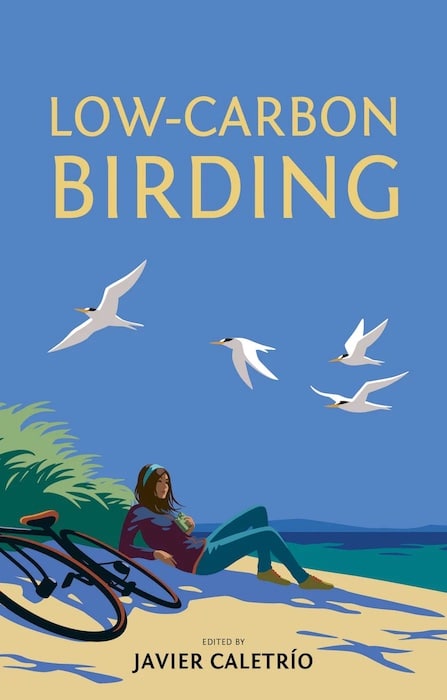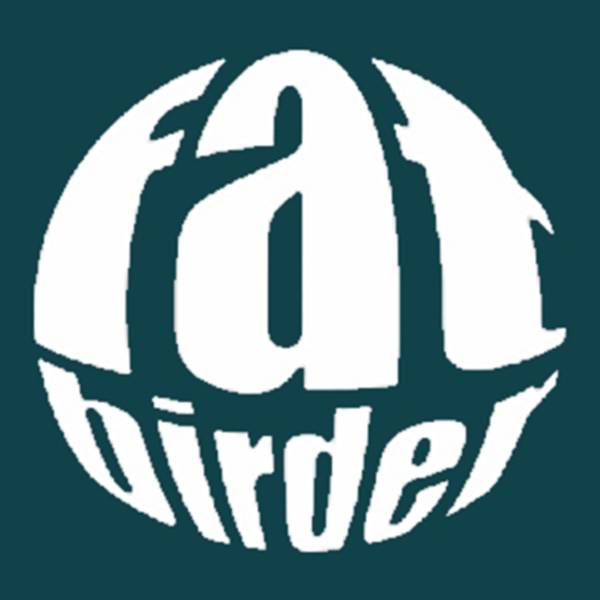| Low Carbon Birding | Edited by Javier Caletrío | Pelagic Publishing | 2022 | Hardback | 251 Pages, 10 B&W Illustrations | ISBN: 9781784273446 | £16.99p |

The Publisher’s View:
Birdwatching in Britain has grown increasingly dependent on burning fossil fuels. Regularly driving long distances to birding hotspots and frequent flying to see exotic species are seen as perfectly normal. In the face of the climate crisis, however, a growing number of birders are reassessing the way they enjoy and study birds. In this timely book, 30 contributors – from young birdwatchers to professional ornithologists – explain why and how they are shifting to climate-friendlier approaches. Low-carbon birding, they argue, is a legitimate and valuable way of enjoying birds. Furthermore, in itself this can bring many joys, some of them unexpected.
From first encounters with hawfinches to focusing in on birdsong, from the Kalahari to the Hebrides, the stories told here are not about heroic efforts to save the planet. They are simply accounts of everyday humanity in unprecedented times – ordinary people with doubts and concerns about how to live a decent life and act responsibly in a rapidly warming world. The authenticity of their voices is a testament to the moment of awakening to the climate crisis in British ornithology. Above all, Low-Carbon Birding is an urgent call for birders to leave a better legacy in the skies and across the living world.
The editor: Javier Caletrío is a birdwatcher and researcher on sustainability transitions and public perceptions of environmental change. Other contributors include individuals with a wide range of backgrounds and experiences, from seasoned patch birders to novices enjoying the freedom afforded by cycling and the pleasures of train travel.
Other Views:
“Adapting our way of life in response to the climate crisis is now a responsibility, not a choice. This readable and inspirational title shows that, with just a few changes to the way we go birding, from local patching to taking the train for holidays abroad, it’s possible to continue enjoying the hobby that we love in a carbon-responsible manner.”
– Stephen Menzie, Editor of British Birds
“A wonderfully diverse collection of first-hand views and experiences of low-carbon birding that encourages all of us to rethink how we value and engage with the world around us.”
– Professor Juliet Vickery, CEO British Trust for Ornithology
“This is a pioneering collection that asks difficult questions of the contemporary culture of high carbon birding. It presses all birders to reimagine their hobby in an era of climate emergency, travelling less and travelling differently. In doing so, the collection offers the prospect of new ways of enjoying birds and the new pleasures that can come from low-carbon ornithology.”
– Professor Sean Nixon, author of Passions for Birds: Science, Sentiment and Sport
“These thought-provoking and fascinating personal stories offer inspiration for how we can all stay local to enjoy birds.”
– Ed Drewitt, author of Raptor Prey Remains and Urban Peregrines
“This book will be contentious for some, but future birders may wonder why it took until 2022 for it to be written. Highly recommended.”
– Ian Carter, Author of Human, Nature and Rhythms of Nature
Fatbirder View:
As a town-dwelling birder with a mobility issue, I was ready to lambast those who proselytise; the holier than thou pedal cyclists and robust walkers who no doubt live in a log cabin on a fenland edge. I was set to ridicule the well-heeled and unthinkingly able-bodied who can afford to live in the heart of the country under a solar panel eating seasonal veg from their half-acre garden. Too often, the unaware privileged take a stance that the great unwashed would love to espouse.
Of course the mother nature is polluted and pillaged and we all have a responsibility to heal her not commit matricide.
It’s as clear that most of us, most of the time, justify what we do rather than change. Whether it is the pursuit of the nationally rare or the internationally exotic, us nature lovers can ignorantly, or dismissively squander what we profess to love. Like the ‘animal lovers’ who disregard the vacuuming of the sea to feed their pet, it’s really not that simple.
I was delighted to find that this carefully assembled collection of essays rarely falls into any of those traps. It is blessedly simply in its espousal of attainable aims.
If we start from the premise that we should not hurt the ones we love, then we clearly need to do everything we personally can to limit our impact on wildlife.
The authors urge change, but do not expect everyone to abandon foreign travel or car use. Mostly, they ask that we each look inward to see not if, but how we can adapt our ways to do less harm.
Having said that, some small changes may well lead us to re-consider our obsession. As I’ve aged I have found myself, like several of the authors, taking more and more pleasure in bird behaviour and more delight in the everyday birds. Like many my twitching days are decades behind me and I stick to mainly local birding. Its years since I left my county to chase is new tick, and my focus has become ever more local. I’ve also combined domestic needs, business and pleasure… a trip to a medical appointment is lined up with a voluntary task which can also afford an hour or two in the woods or marshes.
This book, for the most part gently, encourages us to look at all we do and find ways to reduce our carbon footprint, especially when it comes to indulging our avian pleasures.
There is much here to enjoy, follow and learn from.
Fatbirder
